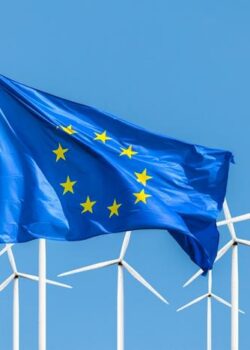US company executives have become more reticent about ESG issues, according to research showing that mentions of the subject and related issues fell during earnings calls with analysts.
The Wall Street Journal reports that mentions have fallen from a peak of more than 900 mentions in the first quarter of last year to just under 600 hundred a year later.
However, the data appears to show that mentions remain higher than a previous high in the first quarter of 2020, just before the Covid-19 pandemic hit Europe and the US.
The WSJ says the decline reverses “a more boastful approach taken over the past few years amid intensifying pressure from some investors and conservative activists”.
Executives may have cooled on terms such as ‘ESG,’ ‘DEI’ and ‘sustainability’, but this may not mean that their enthusiasm for the topics has waned. Instead, as ESG has attracted a heated right-wing political backlash, corporates may be avoiding attention.
MIT sustainability lecturer Jason Jay says some companies may find it “easier” to duck discussion of ESG and instead spotlight other areas of business considered “less controversial”.
ESG activities and behaviour at corporates, such as cutting greenhouse gases, promoting LGBTQ rights and working on social equality (following the murder of George Floyd), have been labelled “woke capitalism” by right-wing campaigners.
Don’t say ESG
Perhaps the most high-profile example is the clash between Florida governor Ron DeSantis and the Disney corporation. After former Disney chief executive Bob Chapek took a stand against the state’s ‘Don’t Say Gay’ bill, DeSantis orchestrated the removal of Disney special “self-governing” status and labelled the company “woke”. In March this year, Disney filed a lawsuit challenging the DeSantis policy.
However, while the Disney clash may make headlines, the real battleground has been the state pension funds of “red” (Republican) states, where governors have moved to ban the use of sustainable investment policies, in particular those that may mean disinvestment for fossil fuel companies.
The politicisation of ESG has become the focus of much examination in recent months, in particular by academics. Oxford professor Robert Eccles recently wrote that the stances taken on ESG by both Republicans and Democrats made no economic sense.
Eccles argues that not using ESG could end up costing funds vast sums of money while disinvestment may be counterproductive when it comes to moving towards sustainable energy. The answer, he suggests, is a “fiduciary duty” law that says ESG factors are only considered when they “contribute to economic value creation”.
Even if companies are reluctant to speak publicly about ESG, they may not be able to maintain their quiet for too much longer. The US Securities and Exchange Commission is considering the response to a consultation on mandatory reporting of climate change risk with new disclosure rules expected next. They would involve companies assessing and then developing plans to mitigate their risks. When the new rules are imposed, it will be hard to avoid talking about the results, especially for high-profile brands.
That said, ESG dissent is likely to continue. The issue seems too entrenched in the political conflict currently under way.
Motion sensitive
Observers have noted that investors in the US have partially cooled somewhat on their previous enthusiasm for ESG motions during AGMs. The Financial Times recently reported they attracted an average of 23% of the vote, down from 36.6% last year. This, however, is likely to be because many motions are picking on more specific issues that large fund managers, wielding big portions of the vote, consider management issues, rather than stewardship concerns such as strategic disclosures.
Elsewhere in the world, corporate action on ESG continues, though not without concerns. In the UK, research by Board Agenda shows that many executives struggle to turn ESG principles into practical action. While 88% of boards say they recognise the need to change, more than a third say they don’t have the skills and knowledge they need in relation to ESG.
In Europe, the EU is working on new rules that will mandate companies to undertake sustainability and human rights due diligence in their supply chains.
ESG has become highly politicised in the US. Companies are feeling the heat from culture wars which has seen right-wing campaigners denigrate ESG as both a concept and policy driver. The latest news may not mean US companies have turned their backs on the idea. But many may seek less publicity for their efforts.





